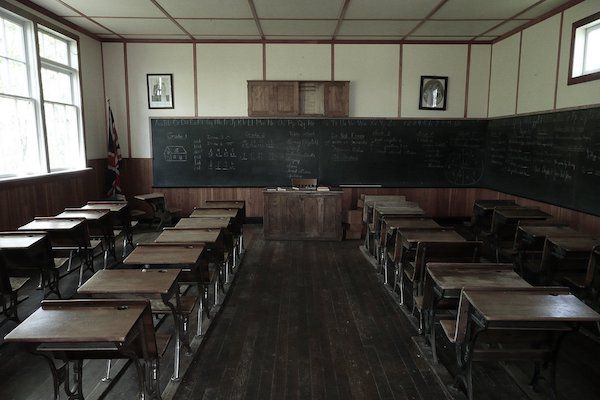


NASEN's recent £250,000 report on children's inclusion in Jersey is 147 pages in length. It is a professionally written document constructed by experts that clearly know their ‘onions’ on the subject. Like all such reports, it aims to be objective in its conclusions - but, as ever, the damnation is in the detail, highlighting no fewer than 50 recommendations.
Most of the recommendations are unlikely to see the light of day, for a number of reasons.
First and foremost, although many in education pay lip service to inclusion, in reality there is no appetite at any level especially where pupils that exhibit challenging behaviour are concerned.
From a political perspective, inclusion is a socialist construct. The present Council of Ministers has already been found severely wanting in respect of its ‘Putting Children First’ agenda. Such a commitment is at the heart of any inclusive agenda.
Whilst the department has a new Head of Unclusion, and we wish her well in her new post, inclusion since before the onset of the pandemic has been largely marginalised, exacerbated by the scurrilous treatment of many experts charged with delivering inclusion. Indeed, sanitisation of the teaching profession has left expertise in this area of education thin on the ground.
From an educational point of view, it goes against the grain of performance targets, draining essential resources. And for what? School management roll their eyes at the prospect. Too much time and energy spent on a small group of disaffected children, it’s easier to offload.
Class teachers feel much the same. Most do not have the skills, resources or patience to deliver inclusion. Even parents are not in favour, seeing disruption in class as a significant obstacle to their own offspring’s academic progress.
Implementing inclusion costs money. Granted, it is cheaper to facilitate inclusion within schools, rather than create a purpose-built Pupil Referral Unit, but it cannot be done on the cheap. The present government, including the Education Minister, has voted down a £20m package for education, some of which would have been used to facilitate inclusion. They may point to Pupil Premium but, although a help, it is peanuts compared to what substantial inclusion would require.
The report highlights the need for planning: a one to two-year speedy input, a mid-term four-year target and a longer, 10-year plan.
In Jersey, long term plans are generally flights of fancy - our government only works in four-year cycles and even these are limited in respect of delivery because, to be successful, somebody in government has to hit the ground running. The likelihood is that we will end up with a quick fix, piecemeal approach to inclusion.
Whilst there are pockets of excellence in respect of inclusion, culturally and ideologically the majority are opposed to its realities. It is evident that almost all inclusion is concentrated in the State school sector. There is little evidence of inclusion elsewhere.
That our education system is divided is obvious but the system is also divisive and the cause of much of the island’s inequality. It stands to reason that schools charging fees to maintain exclusivity are, by definition, not inclusive. That is unlikely to alter until there is a seismic change in policy. Inclusion however it is defined, and the report does endeavour to do this, requires equality of opportunity for ALL pupils. That means equal investment, equality of attendance to individual need, equality of curriculum. The maxim, ‘levelling the playing field’ is bandied about by politicos but without providing the detail as to how this will be achieved.
Wholesale inclusion would mean that all pupils are fully integrated into mainstream classes. Clearly this is not wise, as full-time in mainstream is not appropriate for some. Specialist provision, whether that be in-house or purpose built would be the ideal for this cohort of pupils, with access to integration on a limited basis.
Inclusion should put the child first. Each child should have a bespoke curriculum, one tailored to their educational, physical and emotional needs. This is not as difficult as it sounds. To action this, schools require the ethos and a management team fully committed to delivering. Classroom teachers have to have the skills and the commitment to make the ethos a reality. It will take many years to upskill enough teachers. Most likely this report will join many other independent departmental ‘reviews’ and sit on the shelf gathering dust.
What we do not want is some homogenous, socially engineered, educational soup where equal opportunities is misinterpreted as 'every child must do the same'. Inclusion has to be much more. It has to embrace diversity and recognise that different children have different, educational needs. Equality of opportunity is about allowing each child to follow their own developmental path. It is about equality of resource.
Most importantly, inclusion has to put the children first. What is required is planning. At the start, inclusion might be only one lesson a week, building up the frequency as the child gains confidence. Throwing a child in at the deep end will end in failure. For this reason inclusion will require a dedicated on-site unit, staffed by experts. This will provide a place of safety and security for the children.
Comments
Comments on this story express the views of the commentator only, not Bailiwick Publishing. We are unable to guarantee the accuracy of any of those comments.